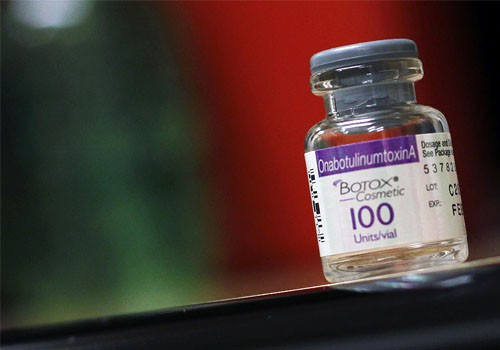Botox and Cosmetic Injections Next Health Scare

Following reports of defective breast implants manufactured by French company Poly Implant Prothese (PIP), it is feared that cosmetic injections will be the next big health scare for women.
Experts said anti-ageing injections will be the next scandal for the cosmetic surgery industry, as loopholes in the law place patients' health in jeopardy, according to a report in The Times.
In the UK, there are 160 injectable fillers certified for sale that can be purchased and used by anyone, leaving patients at risk of poor-quality products and procedures, industry leaders warn.
Department of Health officials acknowledged that regulation of the cosmetic surgery industry had been too lax and marked by oversight.
A review ordered by ministers of patients affected by defective PIP implants will now be expanded to look at regulation of the whole sector.
Health Secretary Andrew Lansley is set to meet advisers to consider whether the National Health Service will cover the estimated £150 million cost of surgery for the 50,000 British women who received the faulty implants.
On the back of the breast implant scandal, there are increasing concerns about what are regarded as common cosmetic procedures, including dermal filler injections designed to smooth wrinkles and fill out cheeks and lips.
While hundreds of thousands of such procedures are thought to be performed every year, the industry remains largely unregulated and no medical training is required to inject patients.
Sally Taber, director of Independent Healthcare Advisory Services, the cosmetic surgery industry body, said the situation was "totally inappropriate". She called for action to be taken to protect patients and stop the PIP implant scandal from being repeated.
"Unless we get this sorted out, dermal fillers will be the next disaster," she told The Times.
"The next thing will be that a patient will have a dangerous dermal filler that's come in from China and it will be 'How on earth did we let this happen?' We need to work together to cut out some of the appalling practice."
Botox is classified as a medicine and must be prescribed by a doctor, even though it does not have to be injected by a doctor.
Injectable fillers can be purchased and sold in the UK with no such restriction.
Fazel Fatah, president of the British Association of Aesthetic Plastic Surgery, said the practice was "exceptionally widespread, a multibillion pound industry and it's an area that it totally unregulated, done by everyone from beauty therapists to specialist surgeons".
He warned: "Some of the fillers are permanent and, therefore, if the patient develops a problem it will be lifelong. There are hundreds of women having problems."
Fatah said fillers should be classified as medicines and rules must be tightened so that only qualified surgeons are allowed to perform cosmetic surgery.
© Copyright IBTimes 2025. All rights reserved.





















